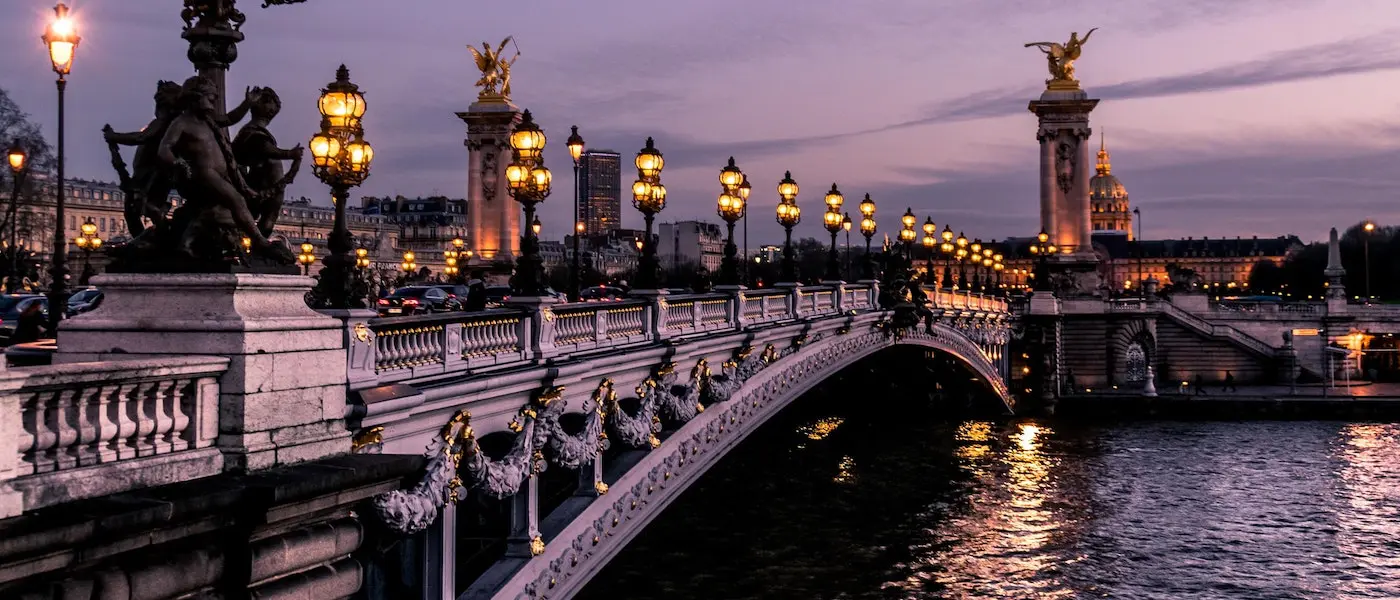
City of Lights (La Ville-Lumière)
Opinions differ about how Paris came to be known as the “City of Lights.” Some Parisians claim that this phrase has prosaic origins, referring to the fact that Paris was one of the first European cities to develop a municipal system of gas streetlights in the 19th century. From our modern vantage point, it’s easy to take streetlights for granted, but, at the time, this technology revolutionized city life! With the advent of streetlights, public spaces were suddenly accessible late into the evening, allowing for commerce, art, and social life to flourish outdoors. This is to say nothing of how illuminated streets vastly improved the personal safety of Parisian residents after dark!
A second theory of how Paris came to be called the City of Lights points to the role that the city played as a center of Enlightenment thinking in the 18th century. Paris has always attracted artists, scientists, and philosophers, but during the Enlightenment the city became the undisputed intellectual hub of Europe. Thanks to the contributions of thinkers such as Voltaire, Jean-Jacques Rousseau, and Denis Diderot, Paris was at the very center of philosophical inquiry and intellectual human emancipation during this period. According to this origin story, the “lights” in question were the brilliant French minds of the Age of Enlightenment, leading their fellow citizens out of the darkness of ignorance and fear.
Both of these stories point to the fact that Paris has always been hub of technological and intellectual progress; a legacy which lives on in the modern city.
Paname
For over a century, Paris has affectionately been known as “Paname” (pronounced pa-NAM) and one can find such references in literature, music, and popular culture. The roots of this nickname actually reach back over a hundred years to a scandal which engulfed the Parisian political class during the first construction of the Panama Canal. Building the Canal was a massive construction and engineering challenge undertaken by a French diplomat and entrepreneur named Ferdinand de Lesseps. As might be imagined, the project would require a massive amount of capital investment. To generate the funds necessary, Lesseps and his unscrupulous bankers resorted to dubious financial practices, which ultimately led to widespread political corruption in Paris and the bankrupting of thousands of investors. The “Panama Scandal,” as it came to be known, broke in the French press caused the downfall of many public figures who were collectively known as “les panamistes.” Over the years, the association of Parisian high society with this scandal percolated out into popular culture, leading to Paris itself earning the nickname of Paname.
Lutetia
Lutetia was the name given by the Romans to the settlement located on the banks of the Seine River, where modern Paris is now located. The name means “muddy place” in Latin and presumably refers to the fact that much of the area around the original Gallic settlement was swampy. It’s worth noting that modern Paris still carries the memory of its earlier geography: Le Marais is one of the trendiest neighborhoods in Paris and its name translates literally to “the marsh” in English! Fortunately, in modern times, Paris evokes neither swamps, nor marshes, but the nickname Lutetia harkens back to an earlier period in the city’s history, to a time before the local geography had been altered beyond recognition.



Comments
No comments yet